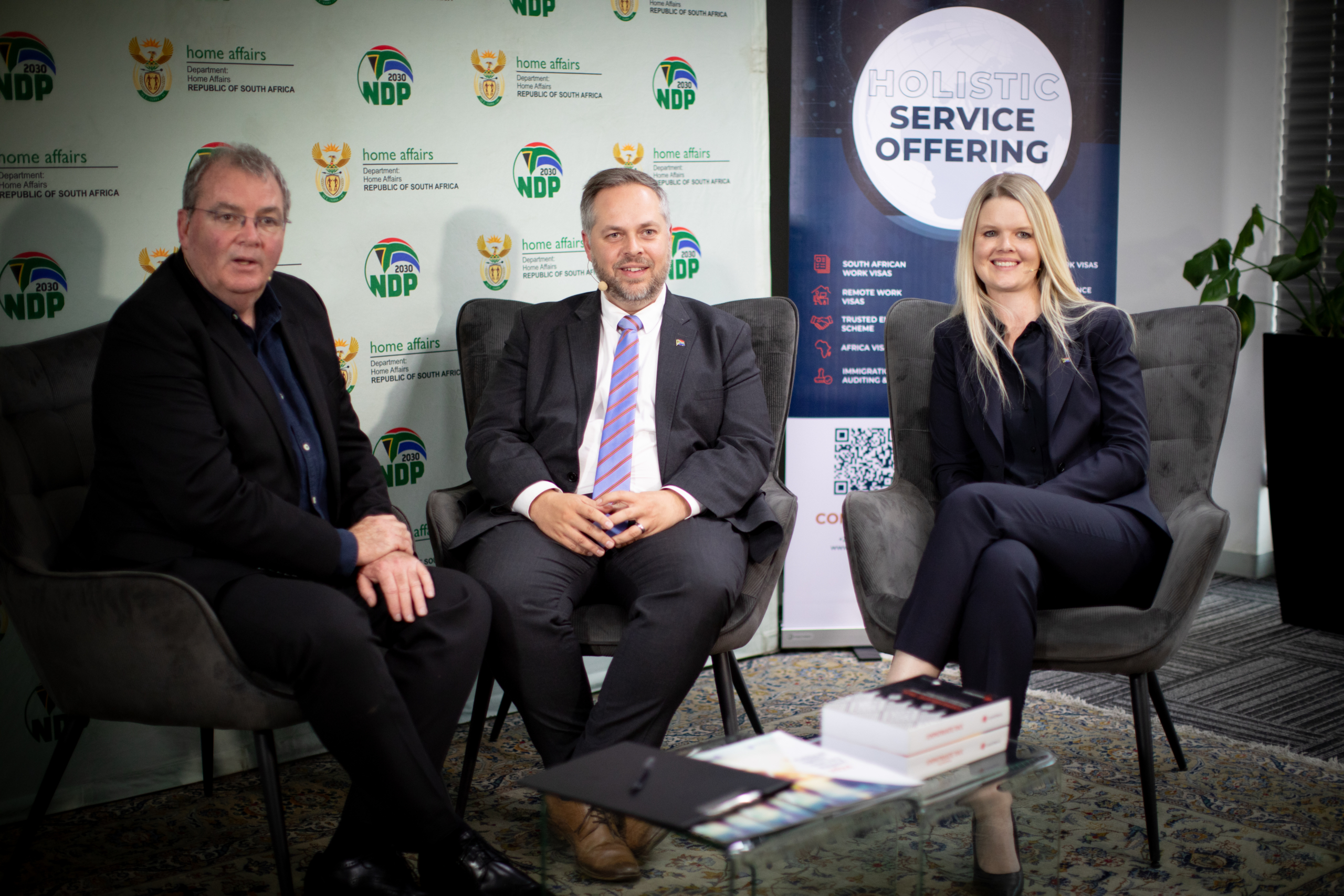Schreiber upbeat on clearing visa backlog by end of 2024
/in 2024, News, Visa Category /by xp-adminHome affairs minister Leon Schreiber is optimistic the department will be able to clear a backlog of more than 300,000 visa applications by Christmas.
At an engagement with stakeholders in business, hosted by independent visa and work permit company Xpatweb on Thursday, Schreiber outlined his plans for the department over the next five years.
He identified the clearing of the backlog as one of his top priorities. He said this was key to boosting economic activity while using the process as a trial to test what works and what does not as he goes about fixing the department.
“We need to view this project as a case study of how to drive reform in the whole department. If this can be achieved, then we will be able to do a lot more,” he said.
South Africa has a backlog of more than 300,000 visa applications stuck at local home affairs offices and foreign missions. Recently, the department said it had finalised 92,886 of these.
Fast-tracking visas for skilled workers to enter the country has been identified as one of the key economic reforms of the government. In April, amendments were made to the country’s immigration laws, allowing foreigners earning more than R1m a year to take out digital nomad visas. Other amendments include the introduction of a new point-based system for work visas, which replaces the critical skills list.
Schreiber said one of the contributing factors to delays in processing visas and other documents is that the department still uses paper-based applications but does not have enough staff to go through them speedily.
“The problem at its core is system processing. There is a big need for system reforms. Look at Sars [South African Revenue Service] today, I’m not saying it’s perfect, but it’s operational. If we did it once, why can’t we do it again?” he asked.
Schreiber said integrating better technology in the department to assist with things such as the verification of documents could reduce the pressure on employees while speeding up the rate at which applications are processed.
The department’s systems remain fragmented, and some applications, especially those done outside the country, tend to get lost in the system.
Standing in a queue for six hours is not dignifying. If home affairs can work, South Africa will work
Leon Schreiber, home affairs minister
“We are literally dealing with paper-based applications that are scattered all over the country, we need a better way to deal with this.”
Phindiwe Mbhele, director of corporate accounts at home affairs, said her team was already looking to develop a database that would track visa applications made overseas, as this has proven to be a major headache.
In April, a dedicated team was set up to deal with the visa backlog, with auditing firm Deloitte and FNB providing resources to help with the process
Schreiber appealed to other private sector players to do the same.
“We need your help as the private sector to ensure that we reform home affairs to make it a place that can restore dignity to our people. Standing in a queue for six hours is not dignifying. If home affairs can work, South Africa will work.”
Marisa Jacobs, MD of Xpatweb and a representative of Business Unity South Africa, said sentiment towards the plans set out by Schreiber was positive, but there were still some concerns. She cautioned that in the rush to clear the visa backlog by the end of 2024, there could be a high number of applications rejected because they were not thoroughly checked.
“I am saying this because there have been instances where some of our clients would be rejected, but the application would then be approved after an appeals process,” she said.
Schreiber said the department would ensure that every application received the attention it required.









